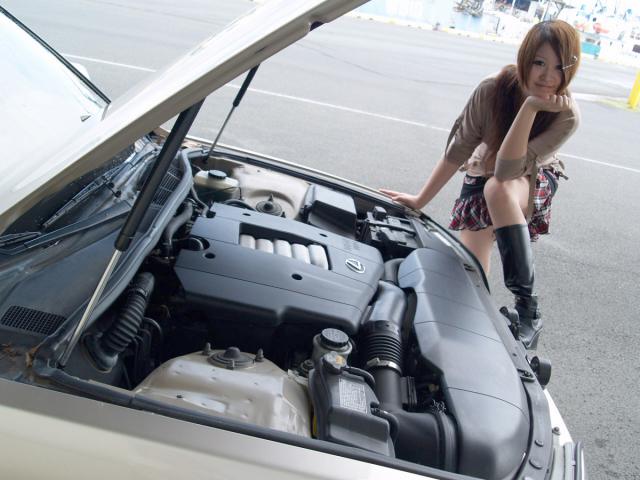#ls400
Ask Jack: The Man Who Flexes From WRXes To Lexus?
I’ve said it before and I’ll say it again: everything, and I mean everything, is utterly and absolutely context-dependent. It’s literally true on the atomic level, where we cannot accurately measure both position and velocity at the same time. It’s true at the quantum level, where “quantum entanglement” governs behavior that is currently beyond our ability to understand. It’s even applicable in your dating life; the same size-six girl who feels insubstantial to you in the long evenings at home will acquire new heft after you spend a drunken weekend away with a size two.
Since this is an automotive website and not The Journal Of Theoretical Physics And Deniable Adultery, let’s focus on what context means in the automotive sense. The definitions of fast car, big car, economical car, reliable car, and even full-sized pickup have all changed several times since the end of the First World War. Imagine you fell into a coma in 1975 and woke up today; you’d probably ask how and why cars got so tiny and trucks got so big. The first 911 Turbo was a “widowmaker” with 260 horsepower; today’s model delivers twice that much power and still isn’t the fastest car (around a track, at least) in its price range.
More importantly, our own personal context for an automobile often determines how much we enjoy and appreciate it. Think of all the people who spend their weekends restoring, cleaning and driving “classic cars” that other people threw away decades ago. Think of the over one million people who couldn’t wait to trade their Tri-Five Chevys in on something new, and of all the people who’ve spent major portions of their lives making those same cars better than they were when they left the assembly line. That’s the power of context.
Which brings me to today’s question for Ask Jack. It’s all about one man’s very unusual, but entirely understandable, definitions of “daily driver” and “weekend special”.
QOTD: What's Your Take on This New 'Sporty' Lexus LS?
On Monday at NAIAS, something interesting happened at the corner of Predator Maw and Sporty Junction: Lexus revealed a new 2018 LS500.
As a fan of the LS model since inception, I was interested. And as far as I can tell, this is the first LS that breaks with a few traditions dating back to its introduction for model year 1990. In no particular order, I’m going to come up with a list, and I’m going to create this list without any judgment, contrary to normal lists around here or created by anyone with real opinions. (Hey, I could end up on the front page of a major search engine’s automotive page!)
With calm, collected thought, I’ll run through them quickly before I get to our Question Of The Day. Come along.
Junkyard Find: 1997 Lexus LS400 Coach Edition (with Bonus Failed Anti-Tow-Away Note)
Three years ago, after becoming obsessed with 1990s Japanese luxury cars and, failing to find a non-thrashed Infiniti Q45 (or even a nice J30), I bought a very clean 1997 Lexus LS400 Coach Edition. It’s still my daily driver and still in great shape, but you always have a need for a few bits and pieces when you drive an older car. The early LS400s are extraordinarily common in low price, self-service wrecking yards these days, but the UCF20 1995-1997 LS is still worth enough that it’s a rare sight at U-Wrench-It.
Last winter, I finally found one in a Denver yard, and it has stories to tell.
90s Japanese Luxury Car Purchase Dilemma Solved: Going VIP!
Back in September, I wrote about my search for a 1990s Japanese luxury car as a daily driver, with the Infiniti Q45, Lexus LS400, and Acura RL as the main contenders. Five months later, I’ve made my choice.
Piston Slap: The Oxygen Network
TTAC Commentator xyzzy writes:
One of the O2 sensors on my 1998 Lexus LS400 recently failed, throwing a P0161 OBDII code (at 175K miles). I’ve cleared the code and verified it comes back, so I don’t think it’s a transient failure. I haven’t yet replaced it, but I have noticed that my gas mileage, as reported on the trip computer, has improved significantly since the failure. Before it was 23-24 mpg, now I’m looking at 26. I know that one of the functions of the O2 sensor is to help regulate mixture, so I’m guessing the mixture is now leaner without one of the O2 sensors. I’ve noticed no discernable change in performance of the car. Assuming I can clear the error code before taking it in for OBDII emissions inspection, is there a downside to just leaving it and running aggressively lean (if that’s in fact what’s happening)?




















Recent Comments